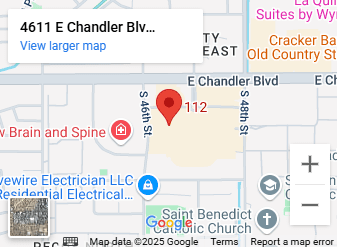Sell My Business: Essential Tips for Selling a Franchise Successfully
Selling a franchise requires more than listing your business—it demands precise valuation, legal preparedness, strategic marketing, and a clear exit plan. By understanding how to value your franchise, navigate transfer approvals, attract qualified buyers, prepare operations for sale, and choose the right exit strategy, you can maximize your franchise’s market appeal and sale price. This guide covers:
- Valuing your franchise using financial metrics, brand strength, and valuation multiples
- Managing legal requirements, transfer clauses, and franchisor approvals
- Finding and vetting buyers through targeted marketing and broker support
- Preparing operational, financial, and brand elements to boost sale readiness
- Developing exit plans, timing your sale, and handling post-exit obligations
- Estimating typical sale timeframes and accelerating the process
- Leveraging a business broker’s expertise to streamline negotiations and close successfully
Each section delivers actionable insights to help you sell your franchise confidently and profitably.
How Do I Value My Franchise Business Before Selling?
Franchise valuation involves assessing quantitative financial metrics and qualitative brand factors to establish a market-aligned price that attracts buyers while maximizing seller returns. Accurate valuation ensures you set a competitive asking price that reflects your franchise’s earning power and growth potential.
Determinants Impacting Resale Premium Disparity When Selling a Small Business: A Predictive Non-Linear Approach
A study by the Rinker School of Business at Palm Beach Atlantic University found that franchise firms receive a higher resale premium compared to non-franchise firms. This research utilized a dataset of over 2,159 small businesses sold over a decade to identify variables predicting above-average resale prices.
This research directly supports the article’s emphasis on accurate valuation and maximizing a franchise’s market appeal and sale price, highlighting the inherent value of a franchised operation.
What Are the Key Financial Metrics for Franchise Valuation?
The core financial metrics—EBITDA, Seller’s Discretionary Earnings (SDE), and cash flow—define a franchise’s profit profile and underlie its market value. Understanding these measures clarifies how much income a buyer can expect and justifies your asking price.
To illustrate, consider these metrics:
- EBITDA calculates earnings before interest, taxes, depreciation, and amortization to measure operating profitability.
- SDE adds back owner-specific expenses (e.g., personal vehicle costs) to reflect true discretionary earnings.
- Cash flow tracks net cash generated, indicating liquidity available for debt service and reinvestment.
Analyzing these metrics together provides a complete picture of financial health and sale readiness, leading naturally into how brand strength further influences valuation.
How Do Brand Strength and Market Position Affect Franchise Value?
Brand strength and market position amplify a franchise’s perceived stability and growth prospects, enhancing buyer confidence and justifying higher multiples. Strong customer recognition, positive reviews, and consistent revenue growth all contribute to premium valuations.
Key brand attributes include:
- Brand Recognition: Established trademarks and local reputation attract a broader buyer pool.
- Customer Loyalty: Repeat business metrics indicate predictable revenue streams.
- Competitive Differentiation: Unique offerings or territory exclusivity reduce buyer risk.
Building on financial assessments, these qualitative factors often form the basis for negotiation leverage and can accelerate buyer decisions.
What Are Franchise Valuation Multiples and How Are They Used?
Franchise valuation multiples translate earnings into sale price by applying a multiplier based on industry norms, deal size, and market conditions. Multiples streamline the valuation process by standardizing expectations across similar businesses.
Below is a comparison of common multiples:
| Earnings Basis | Typical Multiple Range | Rationale |
|---|---|---|
| SDE | 2.0× – 4.0× | Reflects owner-level cash flow appeal |
| EBITDA | 3.0× – 6.0× | Emphasizes operating profitability |
| Revenue | 0.5× – 1.5× | Used for high-growth or low-profit units |
Applying the appropriate multiple to your earnings figure yields a preliminary valuation that guides listing price discussions and buyer offers.
Why Should I Use Professional Franchise Valuation Services?
Engaging professional valuation services ensures objective, defensible pricing based on detailed analysis of industry benchmarks, comparable sales, and market trends. Expert valuation reduces negotiation friction and minimizes price adjustments during due diligence.
A specialist appraiser provides:
- Comprehensive market research and comparable-sale analysis
- Detailed financial modeling and sensitivity testing
- Documentation that withstands buyer scrutiny
Leveraging expert services deepens buyer trust and positions your franchise competitively, seamlessly leading into the legal preparations needed for a successful transfer.
What Legal Aspects Should I Know When Selling a Franchise?
Selling a franchise demands compliance with franchisor transfer clauses, accurate documentation, and clear understanding of ongoing liabilities. Legal readiness protects both seller and buyer, ensuring a smooth transition of rights and obligations.
How Does the Franchise Agreement Impact the Sale?
The franchise agreement governs transfer conditions, fees, and franchisor approval processes. Its transfer clauses often require:
- Prior Notification: Formal notice to franchisor with seller and buyer details.
- Transfer Fee: Payment to secure territory rights for the new owner.
- Performance Criteria: Financial or operational standards the buyer must meet.
Adhering to these clauses prevents sale delays and preserves goodwill with your franchisor partner.
What Legal Documents Are Required to Sell a Franchise?
Accurate, complete legal documentation accelerates due diligence and buyer confidence. Required documents include:
- Franchise Disclosure Document (FDD) covering franchise terms and history
- Sale and Purchase Agreement outlining sale price, payment structure, and contingencies
- Three Years of Tax Returns and Profit & Loss Statements for financial verification
- Operating Manuals and Lease Agreements demonstrating operational consistency
Federal Franchise Rule and Disclosure Requirements
The Federal Trade Commission’s (FTC) Franchise Rule (16 C.F.R. Part 436) mandates that franchisors provide prospective franchisees with a Franchise Disclosure Document (FDD) at least 14 calendar days before they sign a binding agreement or make any payment. This waiting period allows potential franchisees to review the FDD and seek professional advice.
This citation directly verifies the legal requirements and the importance of the FDD, which is a critical aspect of selling a franchise as discussed in the article.
Properly organized documents pave the way for seamless buyer review and approval.
What Are the Common Legal Liabilities After Selling a Franchise?
Post-sale liabilities often stem from breach claims, environmental disclosures, or ongoing royalty obligations. Sellers should:
- Retain records of all transactions for at least three years
- Disclose any pending litigation or regulatory issues
- Understand transitional support obligations under the franchise agreement
Recognizing these liabilities upfront reduces the risk of post-closing disputes and aligns expectations for both parties.
How Do I Navigate the Franchisor Approval Process?
Franchisor approval typically involves formal application by the buyer, background checks, financial capability assessments, and training completion. Key steps include:
- Submitting buyer credentials and financial statements
- Coordinating buyer training schedules and certification
- Obtaining written transfer approval before closing
Efficient coordination with your franchisor unlocks a smoother transfer and reinforces a positive seller reputation.
How Can I Find and Qualify Buyers for My Franchise?
Attracting and vetting qualified buyers ensures you connect with investors who have the financial resources, operational experience, and brand fit to close the sale successfully.
What Strategies Are Effective for Finding Prospective Franchise Buyers?
Targeted marketing channels and outreach tactics increase visibility among serious buyers. Effective strategies include:
- Advertising on specialized franchise resale marketplaces
- Promoting through industry associations and networking events
- Leveraging your franchisor’s internal buyer database
By reaching buyers with proven franchise interest, you raise inquiries that convert into offers.
How Do I Qualify Potential Buyers for My Franchise?
Qualification hinges on assessing financial capacity, relevant experience, and cultural fit. Key qualification criteria:
- Net Worth and Liquidity: Ensuring the buyer can finance the purchase and ongoing fees
- Industry or Operational Background: Demonstrating ability to maintain brand standards
- Alignment with Growth Goals: Matching buyer vision to franchise expansion plans
A structured qualification process filters out unprepared prospects and accelerates serious negotiations.
What Role Does a Business Broker Play in Connecting Buyers and Sellers?
A business broker brings specialized market knowledge, extensive buyer networks, and negotiation expertise to streamline the sale process. Brokers handle:
- Confidential marketing to discreetly promote your listing
- Pre-qualifying inquiries to focus on qualified buyers
- Facilitating negotiations and managing complex transaction details
Engaging a broker leverages professional relationships and optimizes sale timelines and pricing.
How Can I Market My Franchise Confidentially and Effectively?
Maintaining confidentiality prevents staff or competitor concerns while still reaching qualified buyers. Confidential marketing tactics include:
- Using anonymous listings that describe financial performance without naming the franchise
- Distributing teasers through broker networks and targeted email campaigns
- Requiring non-disclosure agreements before sharing sensitive details
This approach balances privacy with broad exposure, leading to stronger offers and faster sale cycles.
How Do I Prepare My Franchise for Sale to Maximize Value?
Operational readiness and clear documentation signal credibility and readiness to buyers, driving higher valuations and smoother transactions.
What Steps Should I Take to Prepare My Franchise for the Market?
A sale-readiness checklist ensures every detail reflects operational excellence:
- Audit Financial Records to confirm accuracy and completeness
- Update Equipment and Facility Maintenance to industry standards
- Standardize Operating Procedures and update training materials
- Enhance Curb Appeal and Brand Presentation for buyer walkthroughs
Tackling these steps assures buyers they are acquiring a turnkey operation.
How Should I Organize Financial Records and Documentation?
Well-organized records accelerate due diligence and strengthen buyer confidence. Group documents by:
- Income Statements and Balance Sheets by fiscal year
- Tax Returns and Bank Statements with reconciled ledgers
- Expense Reports and Vendor Contracts highlighting recurring costs
Transparent documentation prevents surprises and maintains momentum toward closing.
How Can I Ensure Brand Consistency and Operational Stability?
Maintaining franchise standards up to the sale date demonstrates ongoing profitability and reduces buyer risk. Focus on:
- Consistent customer service metrics and mystery-shop results
- On-brand marketing campaigns and social media engagement
- Compliance with franchisor’s quality and safety guidelines
Operational stability carries through to post-sale performance, making your franchise more attractive to buyers.
What Common Pitfalls Should I Avoid Before Listing My Franchise?
Avoiding missteps preserves transaction speed and sale price:
- Overpricing based on emotional attachment rather than market data
- Neglecting Maintenance that leads to negative inspection reports
- Ignoring Franchisor Notifications delaying transfer approvals
- Poor Financial Record-Keeping causing buyer skepticism
Addressing these pitfalls positions your franchise competitively and avoids last-minute deal breakers.
What Are the Best Exit Strategies for Selling a Franchise?
Selecting an exit strategy shapes timelines, tax implications, and post-sale obligations, enabling you to transition smoothly to your next venture.
How Do I Develop a Comprehensive Franchise Exit Plan?
A robust exit plan aligns business goals, personal objectives, and market conditions. Key planning elements:
- Defining target sale price and ideal closing timeline
- Structuring tax-efficient deal terms (e.g., asset vs. stock sale)
- Establishing transitional support obligations and non-compete terms
This strategic roadmap guides decision-making and sets realistic expectations.
What Are My Options for Exiting a Franchise Business?
| Exit Option | Description | Benefit |
|---|---|---|
| Resale to External Buyer | Selling to a third-party investor or operator | Maximizes sale price through market bidding |
| Family or Employee Transfer | Transitioning ownership internally to trusted stakeholders | Simplifies due diligence and retains legacy |
| Franchisor Buyback | Franchisor reacquires location under predefined terms | Streamlines approval and ensures continuity |
When Is the Best Time to Sell My Franchise for Maximum Value?
Optimal timing depends on market cycles, business performance, and economic indicators. Generally:
- Sell after a strong revenue growth year to command premium multiples
- Avoid listing during industry downturns or seasonal lulls
- Monitor interest rates and loan availability for buyers
Aligning your sale with favorable market conditions enhances buyer competition and sale proceeds.
What Post-Exit Involvement and Non-Compete Clauses Should I Expect?
Buyers often require sellers to provide transitional training and agree to non-compete terms that protect territory value. Typical clauses include:
- Training Period of 30–90 days with gradual handover of operations
- Non-Compete Term of 12–24 months within a defined radius
- Consulting Arrangements for an additional fee if extended support is needed
Clear post-exit agreements safeguard buyer investment and preserve goodwill.
How Long Does It Typically Take to Sell a Franchise?
On average, selling a franchise takes 8–12 months, though timing can vary significantly based on preparation and market dynamics. Understanding timeframe drivers helps you plan a realistic sale schedule.
What Factors Influence the Timeframe for Selling a Franchise?
Key timeframe determinants include:
- Business Readiness: Organized records and turnkey operations speed due diligence
- Market Demand: High buyer interest accelerates offer generation
- Valuation Accuracy: Realistic pricing prevents prolonged negotiations
- Franchisor Approval Process: Faster approval shortens closing timelines
Aligning these factors reduces sale cycles and delivers timely results.
How Can I Speed Up the Franchise Selling Process?
To accelerate your sale:
- Prepare thorough financial and operational documentation in advance.
- Engage a business broker with established buyer networks.
- Price competitively based on professional valuation analysis.
- Coordinate early with your franchisor to pre-approve potential buyers.
Proactive planning and expert support can shorten traditional timelines by several months.
Why Should I Use a Business Broker to Sell My Franchise?
A reputable broker amplifies marketing reach, streamlines negotiations, and leverages industry expertise to secure the best deal under favorable terms.
What Are the Benefits of Using a Business Broker Versus Selling Independently?
Business brokers offer specialized advantages over DIY sales:
- Confidential Marketing that protects staff and supplier relationships
- Extensive Buyer Networks for targeted outreach
- Expert Negotiation Skills to maximize sale price and favorable terms
- Transaction Management from listing through closing
These services reduce seller workload and expose your franchise to serious, pre-qualified buyers.
How Does B3 Business Brokers Support Franchise Sellers?
At B3 Business Brokers, our seasoned team combines Arizona market intelligence with regional Southeast US reach to deliver personalized franchise sale solutions. We provide:
- In-depth valuation reports aligned with current market multiples
- Strict confidentiality protocols and premium marketing materials
- Buyer qualification and negotiation facilitation
- Comprehensive transaction coordination through closing
Learn more about our tailored approach on the About B3 Business Brokers – Your Trusted Partner in Business Sales page and discover how our expertise transforms franchise sales.
How Do Business Brokers Help Maximize Franchise Sale Value?
Business brokers enhance value by:
- Aligning pricing strategies to attract multiple offers
- Highlighting growth opportunities and operational strengths
- Mitigating buyer objections through accurate data presentation
- Crafting deal structures that optimize tax outcomes
Their advisory role and market insights drive competitive bidding and elevate final sale proceeds.
Selling your franchise with a structured, strategic approach—grounded in accurate valuation, legal compliance, targeted marketing, and expert representation—ensures you achieve maximum sale value while minimizing stress. By following these essential tips, you position your franchise to attract serious buyers and navigate the sale confidently from listing to closing.




